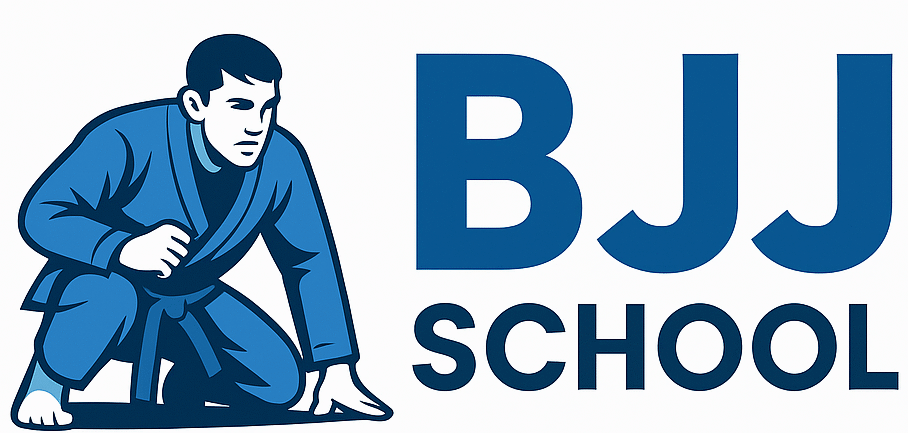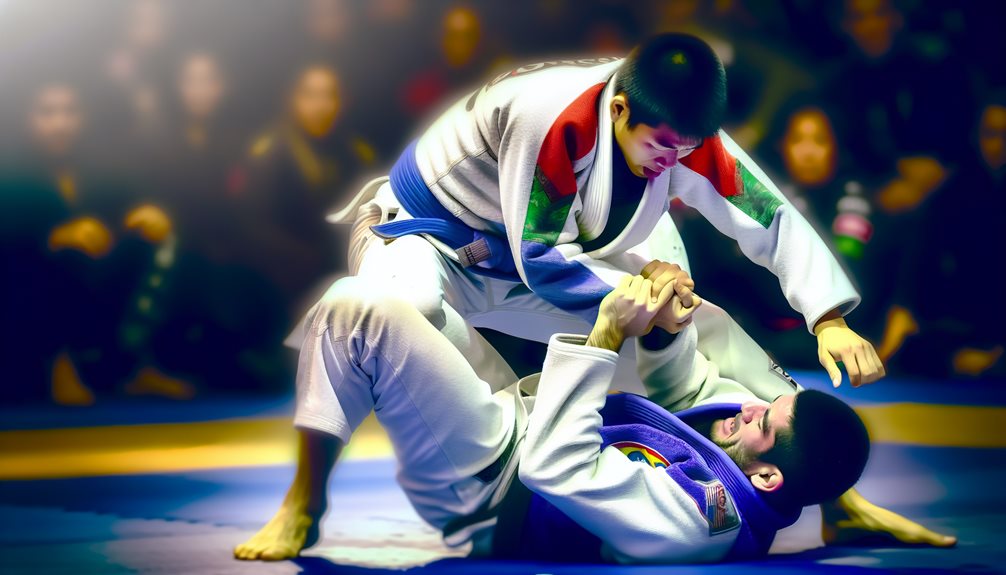The acronym BJJ stands for Brazilian Jiu-Jitsu, explicitly indicating the martial art’s geographical origins and technical framework. This designation distinguishes it from traditional Japanese jujutsu and other grappling styles through its unique methodologies and combat philosophy. Developed primarily by the Gracie family in Brazil during the early 20th century, BJJ represents more than mere terminology—it encompasses a thorough system prioritizing leverage over strength, ground fighting expertise, and practical self-defense applications. The three letters signify an entire ecosystem of techniques, practitioners, and traditions that continue to evolve globally.
The Origin Story: From Japan to Brazil
While many martial arts enthusiasts recognize Brazilian Jiu-Jitsu (BJJ) as a distinct combat system today, its roots extend back to traditional Japanese jujutsu.
The shift began when Mitsuyo Maeda, a Japanese judoka, arrived in Brazil in 1914 and taught his techniques to Carlos Gracie and his brothers.
The Gracie family subsequently adapted these Japanese roots to develop a system emphasizing ground fighting and leverage over strength.
This Brazilian evolution prioritized practical application in real combat scenarios, distinguishing it from its predecessor.
Through systematic refinement and competitive testing, BJJ emerged as a specialized discipline focused on control, submission, and efficient movement from disadvantageous positions.
The Technical Definition of BJJ as an Acronym
Acronyms serve as linguistic shortcuts in martial arts terminology, with BJJ standing officially for “Brazilian Jiu-Jitsu.” This three-letter designation represents the combat system’s national origin (Brazilian) and its technical classification (Jiu-Jitsu), distinguishing it from Japanese jujutsu or other grappling disciplines.
In BJJ terminology, practitioners often reference the acronym when discussing training methods, competition categories, or academy affiliations. The shorthand efficiently conveys the specific grappling methodology characterized by ground fighting and submission techniques.
BJJ techniques are cataloged and taught using this acronym as an organizational framework, creating a standardized nomenclature recognized throughout the global martial arts community.
BJJ as a Self-Defense System
The fundamental core of Brazilian Jiu-Jitsu extends beyond sport competition into practical self-defense applications.
BJJ’s methodology emphasizes using leverage and technique to neutralize larger, stronger opponents—a critical element in real-world confrontations.
Practitioners learn self-defense techniques that enable them to control situations while minimizing harm to all parties involved. These practical applications include strategies for maintaining distance, defending against strikes, and safely restraining aggressors.
The system’s focus on ground fighting addresses the reality that many physical altercations end on the ground, providing students with tactical advantages when conventional standing defense fails.
The Philosophical Dimensions of BJJ
Beyond technical execution and physical combat lies the profound philosophical framework that underpins Brazilian Jiu-Jitsu practice. BJJ practitioners often embrace a mindfulness practice that extends far beyond the mats, cultivating heightened awareness of physical limitations and mental fortitude.
The art’s philosophical dimensions emphasize humility through consistent exposure to one’s vulnerabilities. This framework incorporates ethical principles including respect for training partners, intellectual honesty when facing defeat, and the discipline of ego suppression.
Many adherents view BJJ as a metaphorical journey mirroring life’s challenges—teaching practitioners to remain calm under pressure and find efficient solutions through technique rather than force.
BJJ’s Impact on Physical and Mental Health
Brazilian Jiu-Jitsu offers three distinct dimensions of health benefits for practitioners who engage consistently in training.
First, it develops thorough physical fitness through functional movements that enhance cardiovascular endurance, flexibility, and strength without high-impact stress on joints.
Second, BJJ cultivates mental resilience by requiring practitioners to problem-solve under pressure and accept failure as an educational tool.
Third, it provides neurological benefits through complex movement patterns that improve proprioception and cognitive function.
These interconnected benefits create a holistic health approach that extends beyond the mat into practitioners’ daily lives.
The Global Community and Competition Culture
Since its emergence from Brazil in the early 20th century, BJJ has evolved into a worldwide phenomenon with distinct competitive structures and community norms that transcend geographical boundaries.
The international BJJ ecosystem fosters global camaraderie through academies connected by lineage, instructor exchanges, and digital communities. Practitioners across continents share techniques while preserving the art’s cultural foundations.
Simultaneously, a robust competitive spirit drives the sport’s growth through hierarchical tournament structures—from local competitions to prestigious events like IBJJF Worlds and ADCC.
These competitions standardize technical evaluation while providing practitioners measurable benchmarks for progress within the globally recognized belt system.
How BJJ Transforms Lives Beyond the Mats
Practitioners of Brazilian Jiu-Jitsu consistently report transformative effects that extend well beyond physical training into multiple domains of everyday life. The discipline cultivates critical life skills including resilience, strategic problem-solving, and emotional regulation under pressure.
Research indicates BJJ practitioners develop enhanced self-efficacy through progressive technical mastery and overcoming physical challenges. This personal growth manifests professionally through improved conflict resolution, patience, and systematic thinking.
The mind-body connection fostered in BJJ training enhances cognitive function and stress management capabilities. These transferable skills create measurable improvements in practitioners’ academic performance, workplace dynamics, and interpersonal relationships—demonstrating BJJ’s extensive impact as both martial art and life philosophy.

